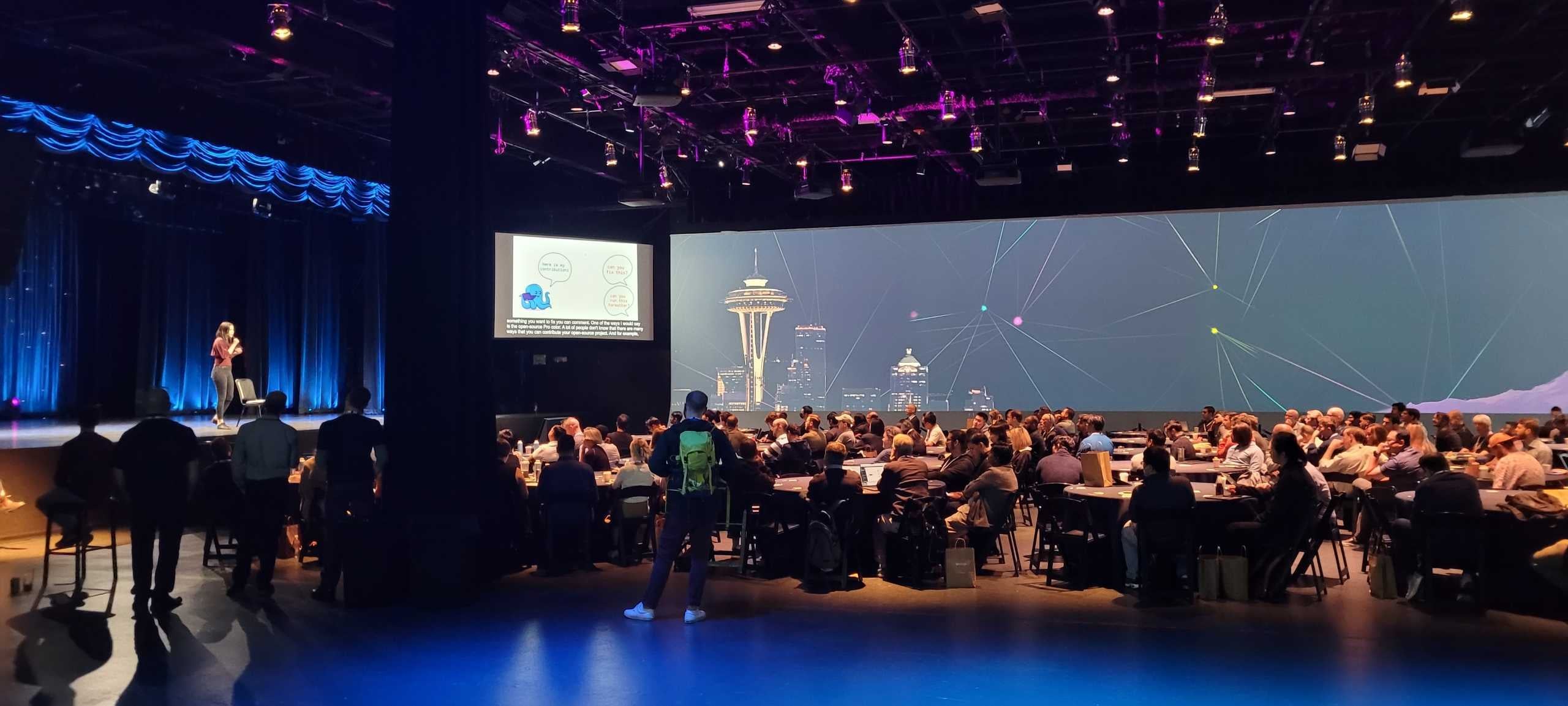The OpenSearch Project is four years old and has always struck me as unique in a few ways. I joined in early 2022 with a charter to build a high performing marketing program to create better website, start promoting the project online and at conferences and win the hearts and minds of open source enthusiasts worldwide. Having been a commercial marketer for some time, this seemed like a great opportunity to build a great team of marketers for a free product that already had some momentum. This team has been dedicated to the project ever since and has produced some really great results along the way.
On day one, I knew OpenSearch was different.
I saw a consistent release cycle, a good pace of new and improved features and the first major new version (2.0) coming in just three months, suggesting a preference for innovation.
I also saw unusually strong interest for a seven-month-old open source project. There was significant web traffic from five of seven continents, and moderate traffic in a sixth. Moreover, some of the key success metrics appeared to be accelerating over time. Web views, social views, downloads, and code commits were all following a strong growth pattern.
Lastly, there was a culture of contribution built by its custodians at AWS and some key early adopters, an indication of a strong and growing community. This culture was obvious in both product and community activity and continues to this day.
A good early example of this is the origin story. A small, multi-company group of people decided to create OpenSearch and then spent six months rewriting or removing millions of lines of code to launch 1.0, the first stable version, in July 2021. When I arrived seven months later, nearly all of those people were still contributing and more had joined the cause.
On the product side of things, the pace has been fast all along, with constant upgrades in performance, features and new ways to build things on OpenSearch. A consistent schedule of stable releases has been ongoing since the start, with 24 major and minor releases in the 1.x and 2.x lines in 46 months. Notably, OpenSearch 3.0 launched in early May 2025 after a nearly three-year long run of the 2.x line. This newest line introduces major improvements in performance and scale with a broad range of features designed to handle modern Vector and AI workloads. This positions OpenSearch as one of the best toolkits for Search, Vector DB, AI and analytics available today.
Watching the community grow and collaborate over the course of the last few years has been quite fun as well. At the center of that has been our meetups, user groups, and conferences. The first time this became real to me was the inaugural OpenSearchCon 2022 in Seattle. Having been one of the show organizers, I was delighted when nearly 250 people showed up at Fremont Studios and talked about OpenSearch all day. Here’s the picture I snapped about 5 minutes into the opening keynote:
Since then OpenSearchCon has been held six more times on three different continents, with a total attendance of nearly 1,700 people. OpenSearch has also had a presence at dozens of industry events in the last several years, and often includes project members and solution providers in their conference plans.
The community has only gotten stronger as we introduced more collaboration avenues and ways to participate, including a public Slack channel, a strong and growing worldwide user group program, and an array of public meetings dedicated to various product topics. The user group program in particular, led by Kris Freedain, is worth checking out. Make sure to reach out if you can’t find a user group in your area, maybe you could be the new leader!
The OpenSearch Software Foundation and rapid growth
On my first day at AWS I was educated about intent. From the beginning, the intent was to create a level playing field for this project. The prevailing opinion was that inviting others to help manage OpenSearch would introduce diversity of thought and increase longevity for the project. That intent became reality in September 2024 when the OpenSearch Software Foundation was formed within the Linux Foundation. There were 12 founding members, and four new members have joined recently. Since the foundation formed, there have been 82 active companies, 579 active contributors, and nearly 9,000 contributions to the OpenSearch project, almost exclusively measured in GitHub activities.
Among these are our active member companies who have made major contributions to the project, some before they joined as members. For example, sustained, high-impact contributions from Uber and ByteDance have led to the addition of new project committers from both organizations. Uber’s many contributions have focused on scalability and cloud-native architecture, reinforcing OpenSearch’s capabilities in large-scale, distributed environments. ByteDance has delivered impactful improvements in Lucene engine performance, k-NN and conversational search. These examples are helping advance both foundational and emerging use cases.
Lastly, I wanted to thank everyone who has joined our events, committed code, commented on an RFC, went to a user group meetup, talked to us at our booth, come to our website, or tried to build something with this fantastic platform. The community that formed and continues to grow is a sign of greatness. This is the fourth anniversary of what will be many more to come. Congratulations to you all.
Happy birthday, OpenSearch.
